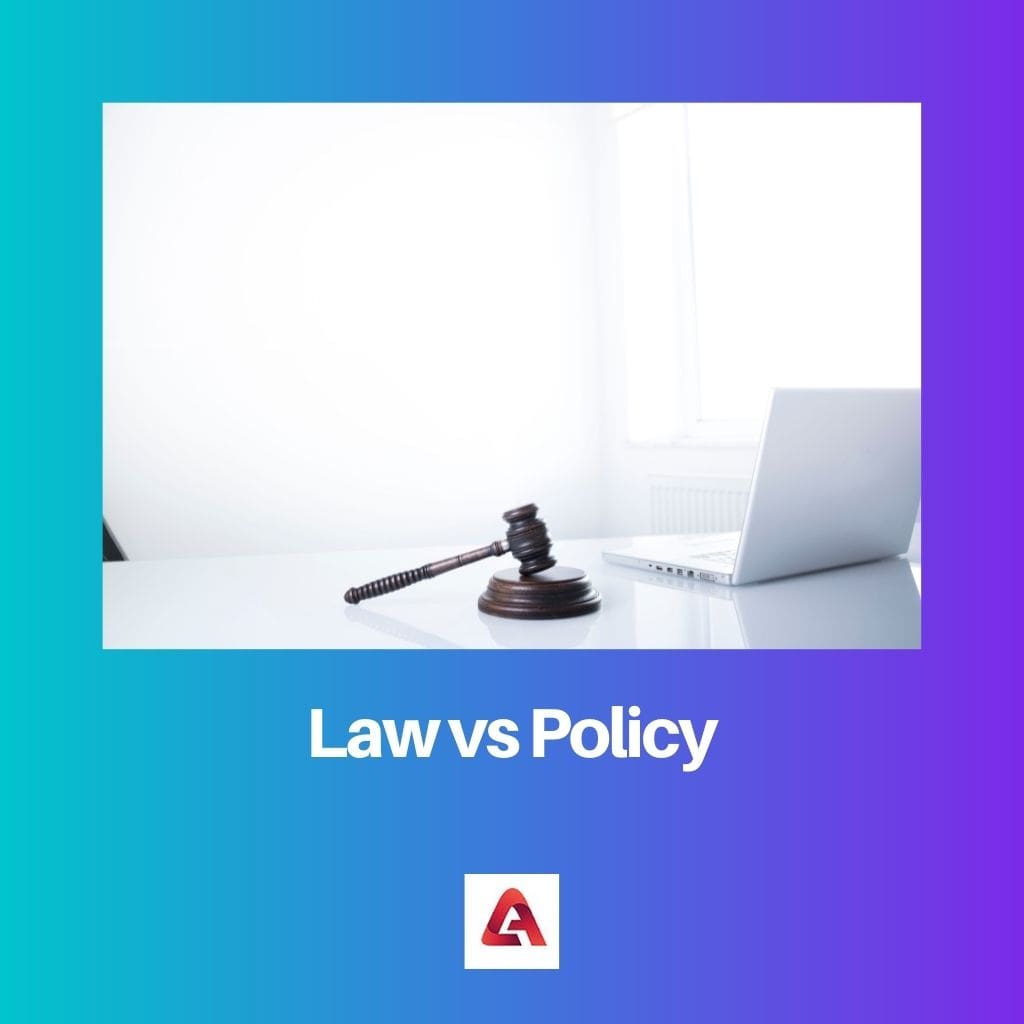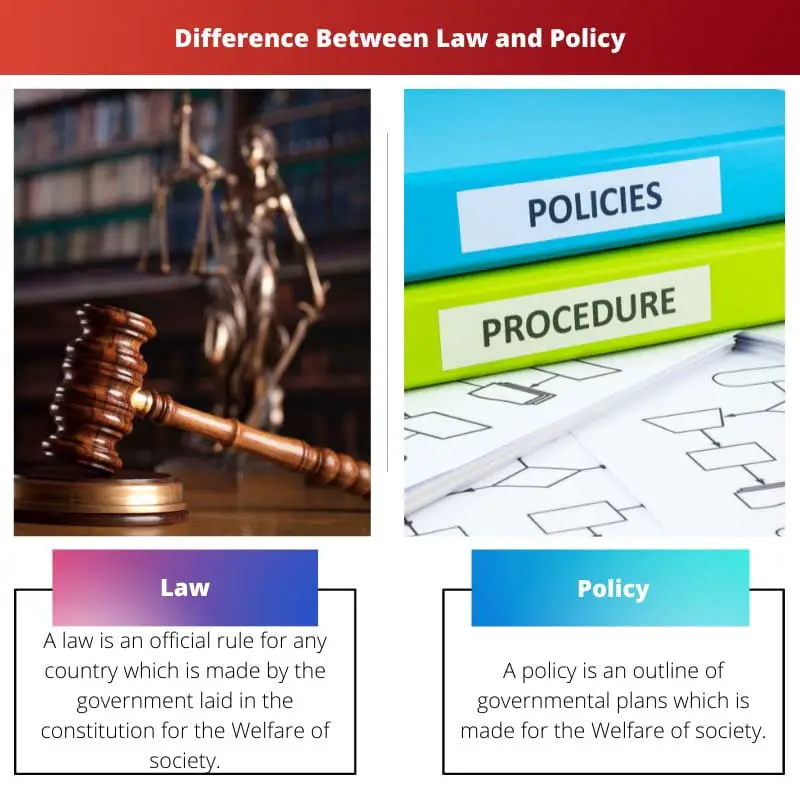Every independent nation has its own set of rules and regulations laid in the country’s constitution. The constitution provides several rights and laws essential for democracy within the nation.
Key Takeaways
- Laws are formal, enforceable rules established by a governing body that regulates behaviour and impose penalties for non-compliance; policies are guidelines or principles set by organizations or governments to shape decision-making and achieve specific goals.
- Laws are created through a legislative process and must be upheld by courts and law enforcement agencies; policies can be developed by various entities, including government agencies, businesses, or educational institutions, without legislative approval.
- Laws have a binding legal effect and can result in punishment or consequences for violations;. However, not legally binding, policies may lead to organizational consequences, such as loss of privileges or disciplinary actions.
Law vs. Policy
The government makes laws to ensure justice and equality in the country. Law makes everyone equal regardless of their status or wealth. The Judiciary controls the law. Laws are mentioned in the Constitution. A policy is a plan made by the government for society’s welfare. The government implements the policy. The policy is not mentioned in the constitution.

Laws are listed in the constitution and are subject to amendment; the authority to enact a law is in the hands of the government, and as the government is chosen by the people of the country thus,
they play an important role in the enactment of any law indirectly.
Policies are made before the enactment of any law, which is then subject to discussions and changes according to the demands of the situation. Every policy or law is made for the welfare of society, and every law or policy is made for every section of society.
There are members within the parliament who are the ministers of different departments who work for the Welfare of people according to their departments.
For example, the Railway Minister will propose policies for the development of the sector of Railways.
Comparison Table
| Parameters of Comparison | Law | Policy |
|---|---|---|
| Type of document | Formal | Informal |
| Control of implementation | Judiciary | Government |
| Mentioned in the constitution | It is mentioned | It is not mentioned |
| Purpose | Equality and Justice in society. | Guidance and working of government or any organization. |
| Punishment for non-adherence | Severe punishments | Not so serious punishment |
What is Law?
A law is an official rule for any country made by the government laid in the constitution for the Welfare of society. The basic agenda of making any law is to provide equality and justice to the country’s citizens.
The law creates uniformity in society by providing equality and Justice to everyone regardless of their social status, wealth, age, caste, creed, gender, religion, etc.
Law is important for society because no society exists without disputes or conflicts of ideas, and law helps to resolve disputes or conflicts of Ideas.
Law is a rule applied to every citizen of the country, the government makes laws, and they are subject to amendments; whenever a new conflict of Ideas arises, the demand for new laws rises.
And if the existing law is exploited in the name of equality, then the law can be amended or removed from the constitution.
The law can be implemented in every sector, for example, trade, social rights, press, the structure of government, working of government, relationships with the neighboring countries, civil law, criminal law, etc.
Laws are administered through the Court, and the Judiciary enacts any law after discussions. The working of the Judiciary is not interfered with by any other governmental body or organization.
Not adhering to the law of a country is punishable for any citizen, for which, again, different laws are mentioned within the constitution.

What is Policy?
A policy is an outline of governmental plans made for the Welfare of society. Unlike laws, policies are not mentioned in the constitution and are subject to changes according to the situation’s demand.
The policy is a statement made by the government That can lead to a new law. The implementation of policies is confined to a few sectors like trade, economy, social plans, etc.
A policy can be a guideline, rule, law, welfare program, etc. In a democratic country, whenever a plebiscite happens, and a new government takes control of the country, these policies are changed, and the basic agenda of the policy change is to focus on more neglected, underdeveloped sections of society.
The policy is enforced to achieve certain goals. Policies are a set of rules that guide any government or establishment. Every government has its policies; thus, they are not fundamental like laws.
Whenever a new government takes control of the country, they are expected to announce its policy which will give an idea to the citizens of what the government will be doing for the next few years for the development and welfare of society.
Policies are informal and can be changed by the government and do not include the judiciary in changing policies. They are complete government decisions on what and how to make government. Policies are only documents.
Not adhering to a policy might lead to punishment but comparatively less severe punishment for not adhering to the law.

Main Differences Between Law and Policy
- Law is a formal document of rule, whereas policy is an informal document for the working of the government.
- Law is administered through the judiciary. On the other hand, the policy is administered by the government itself.
- Laws are established to bring justice to society and equality to society. On the other hand, the government makes policies to achieve specific goals.
- Law is laid in the Constitution. On the other hand, policies are informal documents of the government that are not laid in the constitution.
- Non-adherence law is punishable, whereas non-adherence to policy does not lead to severe punishment






